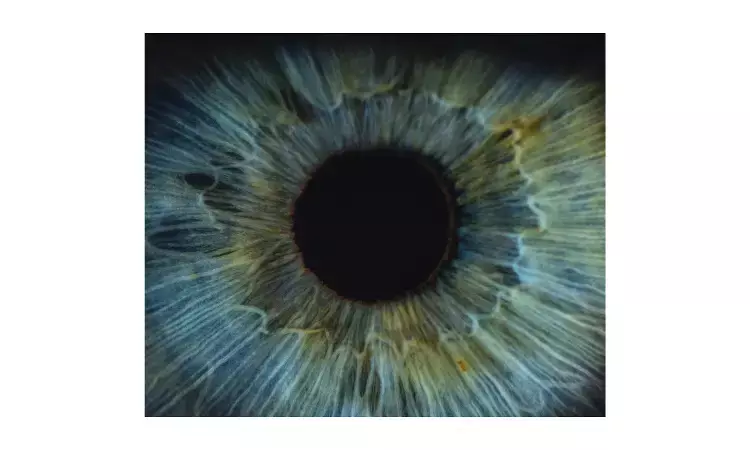- Home
- Medical news & Guidelines
- Anesthesiology
- Cardiology and CTVS
- Critical Care
- Dentistry
- Dermatology
- Diabetes and Endocrinology
- ENT
- Gastroenterology
- Medicine
- Nephrology
- Neurology
- Obstretics-Gynaecology
- Oncology
- Ophthalmology
- Orthopaedics
- Pediatrics-Neonatology
- Psychiatry
- Pulmonology
- Radiology
- Surgery
- Urology
- Laboratory Medicine
- Diet
- Nursing
- Paramedical
- Physiotherapy
- Health news
- Fact Check
- Bone Health Fact Check
- Brain Health Fact Check
- Cancer Related Fact Check
- Child Care Fact Check
- Dental and oral health fact check
- Diabetes and metabolic health fact check
- Diet and Nutrition Fact Check
- Eye and ENT Care Fact Check
- Fitness fact check
- Gut health fact check
- Heart health fact check
- Kidney health fact check
- Medical education fact check
- Men's health fact check
- Respiratory fact check
- Skin and hair care fact check
- Vaccine and Immunization fact check
- Women's health fact check
- AYUSH
- State News
- Andaman and Nicobar Islands
- Andhra Pradesh
- Arunachal Pradesh
- Assam
- Bihar
- Chandigarh
- Chattisgarh
- Dadra and Nagar Haveli
- Daman and Diu
- Delhi
- Goa
- Gujarat
- Haryana
- Himachal Pradesh
- Jammu & Kashmir
- Jharkhand
- Karnataka
- Kerala
- Ladakh
- Lakshadweep
- Madhya Pradesh
- Maharashtra
- Manipur
- Meghalaya
- Mizoram
- Nagaland
- Odisha
- Puducherry
- Punjab
- Rajasthan
- Sikkim
- Tamil Nadu
- Telangana
- Tripura
- Uttar Pradesh
- Uttrakhand
- West Bengal
- Medical Education
- Industry
Retinopathy caused by FGFR Inhibitors self limiting and reversible, finds JAMA study

Specific fibroblast growth factor receptor (FGFR) inhibitors are one of the most recent FDA-approved therapies for the treatment of FGFR-driven cancer. FGFR is involved in the activation of the mitogen activated protein kinase (MAPK) pathway and plays a role in the maintenance, survival, and repair of the RPE. As expected, several studies have reported ocular toxicity as an adverse effect during treatment, including serous retinopathy.
A retrospective study by Jasmine H. Francis, MD and team revealed that FGFR inhibitors resulted in sub retinal fluid foci similar to other drugs that inhibit the MAPK pathway. They found in the series FGFR inhibitors did not cause irreversible loss of vision; the retinopathy was self-limited and did not require medical intervention.
The findings of the study are published in JAMA Opthamalogy.
The objective of the study was to describe the clinical and morphologic characteristics of serious retinal disturbances associated with FGFR inhibitors.
The study was a retrospective case series, 146 patients receiving FGFR inhibitors as cancer treatment at a single tertiary referral center were included. This study included 40 eyes of 20 patients with retinopathy by optical coherence tomography (OCT). OCTs were obtained on the remaining patients and the results were judged normal. Patients were recruited from March 2012 to January 2021. Characteristics of treatment-emergent choroidal and retinal OCT abnormalities as compared with baseline OCT, associated with visual acuity at presentation and at fluid resolution.
The results of the study were
• A total of 20 of 146 patients (13.7%) exhibited FGFR inhibitor–associated retinopathy. Of these 20 patients, 11 (55%) were female.
• The median time from medication start to initial subretinal fluid detection was 21 (5-125; 32) days. The median baseline log MAR best-corrected visual acuity (BCVA) was 0 (0-0.1)
• At fluid accumulation, 11 eyes had decreased vision, subgroup baseline BCVA was 0 (0-0.1); and the median (IQR) BCVA change from baseline to accumulation was −0.1 (−0.2 to −0.1).
• For 26 eyes (65%) with follow-up, the subretinal fluid resolved without medical intervention or drug interruption in all except 1 patient.
• At fluid resolution, the median (IQR) BCVA was 0.1 (0-0.1), and the change in median (IQR) BCVA from baseline to fluid resolution was 0 (−0.03 to 0).
Francis, and team concluded that "FGFR inhibitors result in subretinal fluid foci similar to other drugs that inhibit the MAPK pathway. In this series, FGFR inhibitors did not cause irreversible loss of vision; the retinopathy was self-limited and did not require medical intervention."
Reference:
Francis JH, Harding JJ, Schram AM, et al. Clinical and Morphologic Characteristics of Fibroblast Growth Factor Receptor Inhibitor–Associated Retinopathy. JAMA Ophthalmol. 2021;139(10):1126–1130. doi:10.1001/jamaophthalmol.2021.3331
Medical Dialogues consists of a team of passionate medical/scientific writers, led by doctors and healthcare researchers. Our team efforts to bring you updated and timely news about the important happenings of the medical and healthcare sector. Our editorial team can be reached at editorial@medicaldialogues.in.
Dr Kamal Kant Kohli-MBBS, DTCD- a chest specialist with more than 30 years of practice and a flair for writing clinical articles, Dr Kamal Kant Kohli joined Medical Dialogues as a Chief Editor of Medical News. Besides writing articles, as an editor, he proofreads and verifies all the medical content published on Medical Dialogues including those coming from journals, studies,medical conferences,guidelines etc. Email: drkohli@medicaldialogues.in. Contact no. 011-43720751


